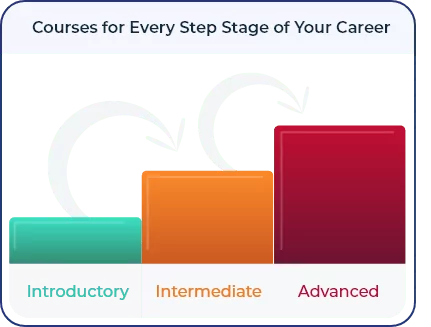So you have taken a PMP® exam preparation class (hopefully with Velopi!) and are now wondering what to do next. Do you schedule the PMP® exam for as soon as possible, so that the material is still fresh, or do you need more time? Whatever answer you come up with will depend on you as a person and on your current circumstances.
However, Velopi strongly advises its students to put serious effort into preparing for the PMP® exam. There is a lot of material to absorb and, even if you use the tools and techniques every day in your project management work, there is no reason to be complacent. Essentially there are three things you must prepare for:
On this page:
- Project Management Institute
- Strategies for Passing the PMP® Exam
- Velopi’s PMP Exam Simulator
- Final Thoughts on Studying for the PMP Exam
PMP Exam Overview
- The Project Management Institute’s way of doing things. Naming conventions and the ordering of activities may differ from what you are used to. You need to understand how these people think, so you can deal with the situational questions in a manner that they agree with. While most of the material you have covered is intuitive, take the time to tune in to the philosophy behind it.
- The question style. You are not paranoid: they are out to get you! Many of the situational questions contain a lot of extraneous details. You have to read the question carefully and extract the salient points. Then you need to consider all four choices given before selecting one. You will regularly find two or more answers with confusingly similar wording. Make sure you choose the right answer, not the first one that looks right.
- The marathon exam. Very few people have ever taken a four hour exam before. No matter who you are, you will eventually get tired during the PMP® exam and lose concentration. When that happens, the traps in the questions will come out and bite you hard. You need to know when this happens to you and schedule breaks before you start under-performing. Learn what you need to do on a break – eat something, stretch, just close your eyes – the clock will be running during these breaks, so make them pay for themselves.
In other words, do not schedule the PMP® exam for the day after the PMP® exam preparation course finishes; you have to get match fit first. So you need to develop a study plan. This requires an honest self-evaluation. What type of student are you? Do you prefer long intense study sessions, or do you get more from frequent small bursts? Do you require absolute silence to study, or can you learn effectively with the Television on and the children re-enacting The War of the Worlds around you? Are you tired after work and reluctant to get stuck into yet more project management stuff? Are you a night owl or an early riser? The bottom line is: decide when, where and how often you can study.
Strategies for Passing the PMP® Exam
Now, what do you do to get across the PMP® line? Well, obviously you need to revise the materials. It is a good idea to break things down into knowledge areas – take a section of the PMP® course at a time. Be an active learner. Instead of trying to memorize facts and figures mindlessly, try to relate the concepts to your day-to-day work. Are you clear about the stuff? Areas like Critical Path Analysis or Earned Value Analysis take a bit of time to get your head around. Use other explanations if the course notes are unclear to you. The Project Management Institute’s Guide to the Project Management Body of Knowledge (PMBOK® Guide) is a good place to start. But there is a wealth of information out there on the web and there are dozens of articles posted here on the Velopi site. Often reading a different explanation is enough for the pieces to fall into place. If you are still uncertain, your Velopi instructor is only an e-mail or a phone call away.
Once you are happy you understand the particular knowledge area, satisfy yourself by taking the relevant knowledge area exam on the Velopi PMP® exam simulator site. These exams are similar to the ten question exams we give at the end of each module in class. In some cases, fifty questions are included, really stretching your knowledge. Do this for all of the knowledge areas. Then do a status check: Are you ready?
Velopi’s PMP Exam Simulator
If you think you are, you now need to build up match fitness before the PMP® exam itself. You need to attempt Velopi’s three, 200-question simulated PMP® exams. Please take these seriously. These will allow you plan your PMP® exam strategy – when to take breaks, etc. – but they will also allow you to reflect honestly on how well you can cope with the PMP® course materials.
Our PMP® exam simulator features an analysis facility to allow you see which project management processes you are poor at. This should focus your study on the areas you are weak at. You really should be looking at an overall score of 75% or higher in the simulated exams. You also should be getting better with each attempt. If you get 65% in Exam 1, 70% in Exam 2 and 75% in Exam 3, you are in better shape than someone who gets 75% in Exam 1 and 70% in Exam 2.
We have seen students fixate on areas they are weak on and ignoring the PMP® processes they are comfortable with. If these are neglected, you will be surprised how fast you forget them. So keep going over the whole course, while paying extra attention to the weak areas.
Final Thoughts on Studying for the PMP Exam
Throughout all this I have cleverly avoided answering the question: when should I schedule the PMP® exam? Including the overall project management sections and the ten knowledge areas, you will need at least twelve good study sessions to cover all the materials. Only then should you attempt a simulated PMP® exam. Then repeat the process for the second exam and finally for the third one. With practice, you should find your confidence growing and the study becomes easier. However, you should go off and do the real PMP® exam after three iterations. If you wait any longer, the PMP® course materials will become boring and you might start to get complacent. So on this basis, a good rule of thumb is to give yourself two months between the PMP® exam preparation course and the PMP® exam itself. Of course, filter that through your own circumstances, but do not put it off too far – a hard deadline can be an amazing motivator.
For more information on Velopi’s PMP® exam preparation courses, please visit our training page or contact us directly.

















